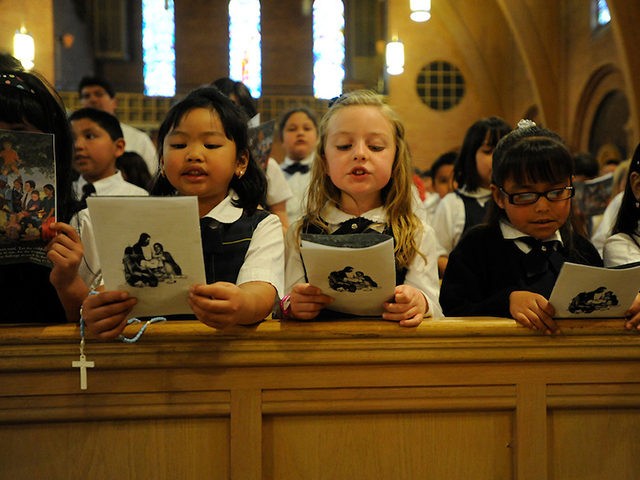The coronavirus pandemic has negatively affected nearly every area of the private economy, which is slowly climbing back, but has a long way to go. One important area that may never be the same is the private school sector, which is facing enormous enrollment declines for the upcoming school year. Immediate financial support and expanding educational choice are two effective ways to preserve this vital education option.
Private school students, families, and employees are deserving of federal support at this moment for the same reason as any other private sector business — namely, they are suffering due to a government-imposed economic shutdown not of their own making.
President Trump and Congress are very soon likely to pass another coronavirus relief bill that will spend a trillion dollars or more to continue to sustain the economy and keep Americans financially afloat. State and local governments and public school districts will receive huge federal dollars to backfill their depleted budgets. Fairness dictates that private school families are not excluded from getting this emergency help.
President Donald Trump is increasingly speaking up for educational choice to enable lower-income families, particularly minority children, to attend schools of their choice. He correctly calls it a “civil right.” His proposed legislation for “Educational Freedom Scholarships,” sponsored by Sen. Ted Cruz and Rep. Bradley Byrne, has more than 100 co-sponsors.
From a conservative standpoint, showering federal dollars on education, which is overwhelmingly a state and local responsibility, is fiscally unsound and even constitutionally dubious. But the Covid-19 pandemic makes these extraordinary times that warrant this momentary federal support.
Conservatives should step up and support one-time funding for families in private, including parochial, schools in any federal support for K-12 education this next coronavirus bill. Ten percent of whatever education funding is determined should go to private schools, which reflects their percentage of total K-12 enrollment.
The Trump Education Freedom Scholarship proposal also should be included in the Covid relief bill. This would provide federal income and corporate tax incentives to encourage private donations to K-12 scholarship funds, which would expand educational choice and stabilize enrollment.
Private schools perform a unique public service by educating children at minimal public expense, compared to more than $15,000 spent on average nationally for each student in a public school. With nearly five million K-12 students enrolled in private schools, state, and local taxpayers save about $75 billion in public school costs every year.
Most of these five million students are not from upper income households. Rather, they are middle class, working class, and poor, whose families make the financial sacrifice to provide this schooling opportunity.
At least 75 private schools have publicly announced they will close their doors permanently, according to numbers tracked by the Cato Institute, most of which are Catholic. Absent action by Congress, this number is expected to balloon to hundreds of schools due to the ongoing pandemic and economic uncertainty faced by so many families on the financial edge.
Hundreds of private school closures across the country will result in higher state and local taxes as many thousands of children move to public schools at the worst possible time, when they already coping with social distancing in limited space. It’s a perfect storm.
Will members of Congress step up to the plate to represent their private school constituents? It is not only sound and sensible policy for this moment, it is great politics – frankly, for both parties.
Helping private school families and expanding school choice would bring immediate, tangible benefits to important constituencies, including Catholics, Orthodox Jews, Hispanics, and African Americans. Several states with large Catholic electorates are battlegrounds, including Michigan, Wisconsin, and Pennsylvania. Republicans for decades have talked about making inroads with minority voters; school choice would make that a reality. Look no further than the purple state of Florida, where state school choice policies turned enough minority voters into Republican voters to make Ron DeSantis governor and Rick Scott a U.S. senator.
Including funding for private school families to keep their children enrolled for the 2020-21 school year also could make the difference in hotly contested Senate races in Arizona, Colorado, Michigan, North Carolina, and other states.
Helping low-income, working class, and middle income families keep their children enrolled in private school this fall will preserve a vitally important educational option, protect thousands of private sector jobs, and save public school taxpayers billions of dollars.
It’s sound policy and great politics for conservatives, if they seize the moment.
Ed Martin is the president of Phyllis Schlafly Eagles, and Peter Murphy is the vice president of the Invest in Education Coalition.

COMMENTS
Please let us know if you're having issues with commenting.